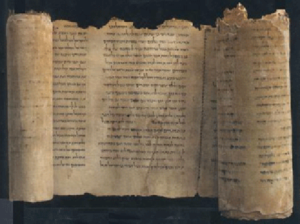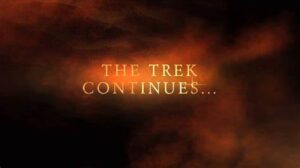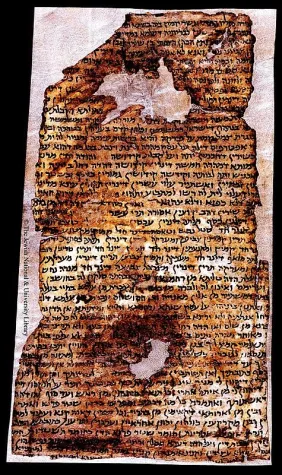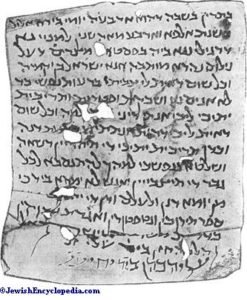How Can Jesus Be Heir to the Throne of David?
If Mary, a virgin, miraculously conceived Jesus by the Holy Spirit, how then can Jesus of Nazareth have a legal claim to the royal inheritance rights of the House of David without a biological father? The answer lies in the established legalities of the Jewish laws of family and priest hereditary rights.

“… he who comes first in the order of hereditary succession transmits that right to his descendants, and that the father comes before all his descendants in hereditary succession…” – Jewish Encyclopedia
Marriage, in a normal situation, would have provided the legal means for Joseph to pass to Jesus his rights of inheritance to the lineage of David.[1] Mary’s unique circumstances were anything but normal plus the freewill of Joseph was a wild card.
Joseph was visited by an “angel of the Lord” with a message that Mary became pregnant by the Holy Spirit and would bear a son as a fulfillment of a prophecy. Although he was not the biological father of Mary’s baby, Joseph decided he would not divorce her and serve as the father to her baby.
Lineage inheritance rights of the son and paternity by the father relied on several Jewish laws and customs. The law favored the rights of the unborn son who had no control over the circumstances of his own conception.[2]
“Doubtful paternity involves not only the right of inheritance, but also, if the father be a kohen, the claim of priesthood with all its privileges and restrictions, including those regarding incest and prohibited marriage. Biblical chronology ignores the mother in the lineal descent of generations. The father was considered the stem of the family tree. The census was conducted “after their families, by the house of their fathers” (Num. §, 2). The father’s priesthood descended to his issue only by legal (with kedushlu) and lawful (not incestuous) marriage.” – Jewish Encyclopedia
For a female impregnated by someone other than the husband, paternity rights were also addressed by other Jewish legalities.[3] Marriage preserved the lineage inheritance rights for Jesus from his father, regardless of Mary’s source of conception.
“Acts of adultery by a wife living with her husband do not affect his paternity of her children, as the maxim is “The issue follows the majority of cohabitations by the husband” – Talmud Sotah 27a
“Paternity can not be claimed for a child begotten out of wedlock when the alleged father disclaims it, even though the mother was his mistress and the child be born after he has married her.” The mother’s own claim, when denied by the man, is not accepted. But a man may establish his paternity of a son born out of wedlock, to entitle the son to the right of inheritance and of priesthood. A man may also disclaim the paternity of a child born to his legal wife; but he may not do so after that child has had a child (Shulḥan ‘Aruk, Eben ha-‘Ezer, 4, 29).” – Jewish Encyclopedia
Conception outside of marriage was not a disqualifying factor for the inheritance and lineage rights to the priesthood. Paternity by Joseph, the wild card factor, was a different matter – he still had the option to disclaim paternity.
Further action was required to prove paternity – Joseph had to establish that he accepted the child as his own. One definition of “establish” by Merriam-Webster is: “to cause (someone or something) to be widely known and accepted.”[4] Joseph took several steps to establish Jesus as his rightful son.
As parents, Joseph and Mary had their 8-day old son circumcised. At that time, they officially named him “Jesus” as each had been independently instructed by an angel:[5]
LK 2:21 And when eight days were completed for the circumcision of the Child, His name was called JESUS, the name given by the angel before He was conceived in the womb. (NKJV)
A month after the birth of Jesus, two more separate events took place as required by the Law – the purification by Mary after her childbirth and the Redemption of the Firstborn by Joseph, each with different requirements:
LK 2:22-24 “Now when the days of her purification according to the law of Moses were completed, they brought Him to Jerusalem to present Him to the Lord (as it is written in the law of the Lord, “Every male who opens the womb shall be called holy to the LORD”), and to offer a sacrifice according to what is said in the law of the Lord, “A pair of turtledoves or two young pigeons.”” (NKJV)
Additionally, every mother was required to forego a purification ceremony. The law required, 33 days after childbirth for a son, 60 days for a daughter, the mother was to offer a purification sacrifice.[6]
A father of a mother’s firstborn had responsibilities known as the Redemption of Firstborn ceremony when every firstborn son was to be presented to a priest. Redeeming a first-born required no sacrifice, only a nominal payment to the priest.[7]
Jewish custom expected the father to pronounce a blessing on his son to be followed by a feast. A priest attended the feast and had a dialog with the father to make an impression upon the attendees. One of the purposes of the Redemption of Firstborn ceremony was to affirm the right of inheritance of the firstborn:[8]
“Any doubt regarding the primogeniture of a child is decided in favor of the father.” – Jewish Encyclopedia
“Primogeniture” has two definitions according to Merriam Webster. The first, “the state of being the firstborn of the children of the same parents.”[9] The second relates to the first: “an exclusive right of inheritance belonging to the eldest son.”
Joseph publicly established paternity on at least three major occasions affirming the lineage and inheritance rights of Jesus. As father, Joseph presented Jesus to the Lord and gave him a first-born blessing.
Jewish leaders never challenged that Jesus was born in the royal lineage of the House of David. Prophecies by Isaiah, Jeremiah and Zachariah, concurred by Rabbi sages, set forth the one commonly held requirement that the Messiah must be born in the House of David. What is the probability that the inheritance rights of Jesus met the requirements of the prophesied Messiah?
Updated July 4, 2025.
This work is licensed under a Creative Commons Attribution-NonCommercial-NoDerivatives 4.0 International License.
REFERENCES:
[1] “inheritiance.” Jewish Encyclopedia. 2011. < http://www.jewishencyclopedia.com/articles/8114-inheritance > “adoption.” Jewish Encyclopedia. 2011. <http://jewishencyclopedia.com/articles/852-adoption> Myers, Jeremy. Redeeming God. Jewish Law. image. 2011. <https://redeeminggod.com/wp-content/uploads/2011/07/Jewish-law.gif>
[2] “Paternity.” Jewish Encyclopedia. 2011. <http://jewishencyclopedia.com/articles/11939-paternity>
[3] “Paternity.” Jewish Encyclopedia. 2011. “primogeniture.” Jewish Encyclopedia. 2011. http://jewishencyclopedia.com/articles/12362-primogeniture>
[4] “establish.” Merriam-Webster. English Language Learners Definition of establish. <https://www.merriam-webster.com/dictionary/establish>
[5] Leviticus 12:3; Matthew 1:19-25; Luke 1:31. “Circumcision.” Jewish Encyclopedia. 2011. <http://jewishencyclopedia.com/articles/4391-circumcision>
[6] Leviticus 12:2-8. “Childbirth” Jewish Encyclopedia. 2011. <http://www.jewishencyclopedia.com/articles/4328-childbirth>
[7] Numbers 18:15-16; Luke 2:22-24. CR Exodus 13:2; Numbers 3:46-49, Deuteronomy 21:17. “First Born, Redemption of.” Jewish Encyclopedia.
[8] ““First-born, redemption of.” Jewish Encyclopedia. 2011. “First-born, Redemption of.” Jewish Encyclopedia. 2011. <https://jewishencyclopedia.com/articles/6138-first-born-redemption-of>
[9] “primogeniture.” Merriam-Webster. 2019. <https://www.merriam-webster.com/dictionary/primogeniture>



